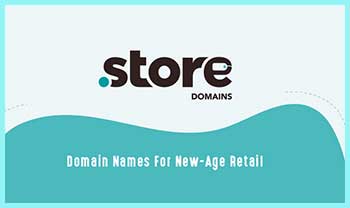When starting an online business, one of the most important early decisions is choosing your domain name. Should you go with a “.shop” domain, signaling that you sell products or services online?
Or is a “.store” domain, which covers online and brick-and-mortar establishments, better suited for your needs? There are good arguments on both sides. Let’s take an in-depth look at the differences, pros, and cons of shop Vs. store domains.
A Brief Comparison Table
| Domain Type | Shop | Store |
| Length | Usually shorter | Usually longer |
| Focus | E-commerce | Broad, encompasses physical stores too |
| Established | Newer | Very common |
| Availability | More likely available | High competition |
| Names | Simple, memorable | Descriptive, optimized for SEO |
What Is A Shop Domain?
A shop domain utilizes the .shop top level domain (TLD) and tends to imply a focus on e-commerce. These domain names are often shorter and more memorable. Some examples include www.outfits.shop, www.gadgets.shop, or www.books.shop.

The .shop TLD only became available in 2016. So shop domains are newer and less common than other options. Their simplicity can make them easier to market and build brand recognition around. Their brevity may also aid with mobile use and search engine results.
On the potential downside, the e-commerce association of shop domains also makes them a bit more niche. If you sell purely digital products or services, run an informational website, or have a brick-and-mortar location, a store domain may suit your broader needs.
What Is A Store Domain?
A store domain uses the older, better established .store TLD. These domains are extremely common, with over 500,000 registered. Examples include www.outfitsstore.com, www.gadgetsstore.com or www.booksstore.com.

Store domains encompass online shops but also physical retail establishments, making them more versatile. Their longevity and ubiquity can help build user trust in your brand. They also enable more room for keywords and descriptive names that can aid SEO efforts.
The popularity of store domains also works against them in some regards. More competition exists to find an available .store domain name that meets your preferences. Their commonness provides less of the simplicity and memorability that often benefits shop domains.
Key Benefits Of Shop Vs. Store Domains
Shop Domain Pros
- Short, simple, and memorable
- Signal an e-commerce focus
- Newer extension stands out more
- Often still available for purchase
- Effective for niche online shops
Store Domain Pros
- Broader, more versatile implications
- Trusted, established domain extension
- Typically allows longer, descriptive names
- Works for physical stores too
Downsides To Consider
Shop Domain Cons
- Narrowly associated with web stores
- Not as widely recognized
- Very short domains may be taken
Store Domain Cons
- High competition for good names
- Less unique due to ubiquity
- Long names can complicate marketing
Also Read: Differences Between Casetext And Fastcase.
Is One Domain Type Better Overall?
There is no definitive “best” domain type that fits all business models and preferences. In many cases, either choice could suit your online shop equally well.
Shop domains make the most sense for small e-commerce site owners who want a short, catchy name that signals they sell online. Store domains are better options for larger brands desiring a descriptive name with versatility across web and brick-and-mortar establishments.
For most online stores, checking the availability of your preferred names as both .shop and .store domains is wise. If you must pick between an available shop name and available store name very similar in theme, briefly consider their respective pros and cons above before deciding.
FAQs
Here are answers to some frequently asked questions when comparing shop and store domains:
Yes, shop domains can be perfectly good choices depending on your business model and preferences. They effectively convey e-commerce sites, are shorter on average, provide good brand building potential around simplicity and memorability. Just confirm that their sometimes narrower e-commerce association suits your current and future plans.
Store domains use the longer established .store top-level domain. They cover online stores but also most brick-and-mortar establishments. Their versatility and ubiquity make store domains good conventional options for small or large brands alike.
Absolutely. .Store is one of the most common and trusted domain extensions. Over 500k sites use store domains successfully. Their only potential drawbacks relate to typically longer, less catchy name options compared to .shop domains.
Either a .shop or .store domain can suit Shopify stores well. Those wanting a short, memorable brand name signaling online sales may prefer .shop names. Those who desire versatility for future expansion into an offline store or who prefer descriptive names for SEO may opt for .store instead.
Also Read: Choose Between Yotpo And Smile.io.
Conclusion
When deciding between shop and store domains, there are good arguments for both options. Shop domains tend to be shorter, simpler, more memorable and have strong e-commerce implications that can aid niche online stores. Store domains are more common and established, enable lengthier descriptive names, and can suit a wider variety of business models.
Much comes down to your specific preferences and planned business scope. Seeking availability of your preferred terminology as both domain types is wise to compare which practical options meet your needs. With a thoughtful approach, either choice offers paths to memorability, good SEO, and brand building tailored to online retail.